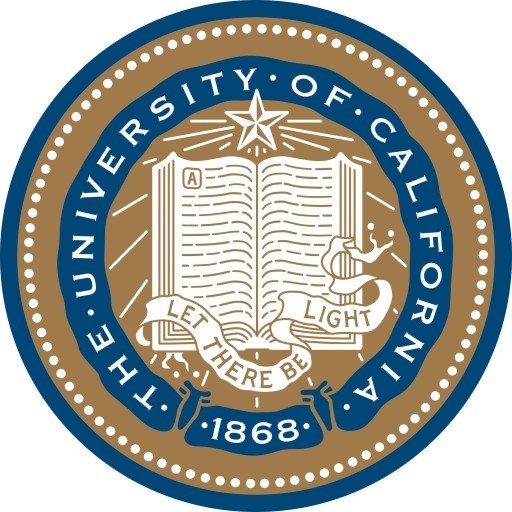Photos of university / #ucsc
The program in molecular, cell, and developmental (MCD) biology (courses BIOL) leads to either the doctor of philosophy (Ph.D.) or the master of arts (M.A.) and is designed to prepare students for careers in research, teaching, and biotechnology. Current research in MCD biology focuses on such topics as the structure and function of RNA, gene expression, chromatin structure, epigenetics, signaling, cell division, development, nerve cell function, and stem cell biology.
Complete the graduate core course:
- BIOL 200A, Critical Analysis of Scientific Literature (to be completed in the first year)
- BIOL 289, Practice of Science
Enroll in the seminar series each quarter, Biology 291 and 292
Complete two (2) approved advanced electives (list below). The two electives may be completed in either the first or second year
Write a master’s thesis based on original research. (A scholarly dissertation of the literature and progress on research project. A peer-reviewed publication is not required for graduation.)
Present a thesis defense in a departmental seminar. The student will present their research project in a public venue such as a departmental seminar or one of the research clubs (RNA club, chromatin club, neuro club etc.).
Approved Graduate Electives (Ph.D. and M.A. students complete two)
- BIOL 200B, Advanced Molecular Biology or,
- BIOL 200C, Advanced Cell Biology or,
- BIOL 200D, Advanced Developmental
- BIOL 201, RNA Processing
- BIOL 203, Ribosomes and Translation
- BIOL 204, Chromatin and Transcription
- BIOL 205, Epigenetics
- BIOL 206, Introduction to Stem Cell Biology
- BIOL 206L, Current Protocols in Stem Cell Biology
- BIOL 207, Population Genetics
- BIOL 208, Cellular Signaling Mechanisms
- BIOL 214, Advances in Cancer Biology
- BIOL 215, Applied Statistics for Molecular, Cell and Developmental Biology
- BIOL 226, Advanced Neuroscience
- BIOL 228, Developmental Neurobiology (new class)
- AMS156, Linear Regression*
- AMS202, Linear Models*
- AMS205B, Intermediate Classical Interference*
- AMS256, Linear Statistical Models*
- BME110, Computational Biology Tools
- BME130, Genomes
- BME210, Applications and Analysis of Microarrays
- BME220, Bioinformatics
- BME230, Computational Genomics
- BME237, Applied RNA Bioinformatics
- Chem200A, Advanced Biochem: Biophysical Methods
- Chem200B, Advanced Biochem: Protein Structure and Function
- Chem200C, Advanced Biochem: Structure and Function of Nucleic Acids
- Chem238, Topics in Biophysical Chemistry/Grant Writing
- EE215, Micro-Electro-Mechanical Systems (MEMS) Design
- METX202, Cellular and Molecular Toxicology
- METX206A, Advanced Microbiology
- METX210, Bacterial Pathogenesis
*Students who have had no or very little statistics should audit or take AMS 7 (5 credits) and perhaps also AMS 7L (2 credits) to learn the basics, before taking one of the graduate-level courses.
Requirements
- Transcripts. You may upload a scanned copy of your unofficial transcripts to your online application, or send official copies to the Graduate Application Processing address
- Statement of Purpose. Recommended length is a concise 2-4 pages, single-spaced.
- The Personal History Statement is required of all applicants.This statement will be used in conjunction with your application for graduate admission and financial support. Please note that the Personal History Statement should not duplicate the Statement of Purpose.
- A résumé is required for some applications and optional for others.
- All recommendation letters are required to be submitted electronically through the online application. You must register a minimum of three recommenders, and as many as five, via the Recommendations page of the online application.
- The application fee for the 2016-17 academic year is $105 for domestic applicants and $125 for international applicants. This fee can be paid by credit card or e-check (the e-check option is only available if you have a U.S. bank account).
- Official GRE scores must be sent from the Educational Testing Service (ETS) to UC Santa Cruz, School Code 4860 (no department code necessary). Official scores must be received prior to the application deadline.
- If you are a non-native English speaker you will be required to take an English language competency exam. UC Santa Cruz accepts the TOEFL or IELTS test. Official scores must also be sent from the testing service to UC Santa Cruz, School Code 4860
Scholarships
- Regents Fellowships. A limited number of these fellowships are awarded to first-year graduate students in master's and doctoral programs. These awards provide a stipend and/or payment of university fees except non-resident tuition.
- Global Education


